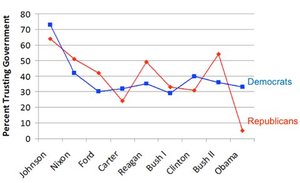Angry Birds, the top-selling paid mobile app for the iPhone in the United States and Europe, has been downloaded more than a billion times by devoted game players around the world, who often spend hours slinging squawking fowl at groups of egg-stealing pigs.
While regular players are familiar with the particular destructive qualities of certain of these birds, many are unaware of one facet: The game possesses a ravenous ability to collect personal information on its users.
When Jason Hong, an associate professor at the Human-Computer Interaction Institute at Carnegie Mellon University, surveyed 40 users, all but two were unaware that the game was storing their locations so that they could later be the targets of ads.
"When I am giving a talk about this, some people will pull out their smartphones while I am still speaking and erase the game," Mr. Hong, an expert in mobile application privacy, said during an interview. "Generally, most people are simply unaware of what is going on."
What is going on, according to experts, is that applications like Angry Birds and even more innocuous-seeming software, like that which turns your phone into a flashlight, defines words or delivers Bible quotes, are also collecting personal information, usually the user's location and sex and the unique identification number of a smartphone. But in some cases, they cull information from contact lists and pictures from photo libraries.
Data-Gathering via Apps Presents a Gray Legal Area
The data collection practices of app makers are loosely regulated, but the European Union is working on proposals to get explicit consent from consumers to cull their personal information.
The makers of Angry Birds, Rovio Entertainment of Finland, discloses its information collection practices in a 3,358-word policy posted on its Web site. But as with most application makers around the world, the terms of Rovio's warnings are more of a disclaimer than a choice.
The company advises consumers who do not want their data collected or ads directed at them to visit the Web site of its analytics firm, Flurry, and to list their details on two industry-sponsored Web sites. But Rovio notes that some companies do not honor the voluntary lists.
As a last resort, Rovio cautions those who want to avoid data collection or ads simply to move on: "If you want to be certain that no behaviorally targeted advertisements are not displayed to you, please do not use or access the services."
Policy practices like Rovio's often do little to inform consumers. Most people simply click through privacy permissions without reading them, said Mr. Hong, the Carnegie Mellon professor. His institute is developing a software tool called App Scanner that aims to help consumers identify what types of information an application is collecting and for what likely purpose.
In Europe, lawmakers in Brussels are planning to bring Web businesses for the first time under stringent data protection rules and to give consumers new legal powers, the better to control the information that is being collected on them.
Proposed revisions to the European Union's General Data Protection regulation now before the Civil Liberties, Justice and Home Affairs Committee of the European Parliament would require Web businesses to get explicit consent from consumers to collect data. A proposal would also give consumers the ability to choose what information an app can store on them without losing the ability to use the software.


